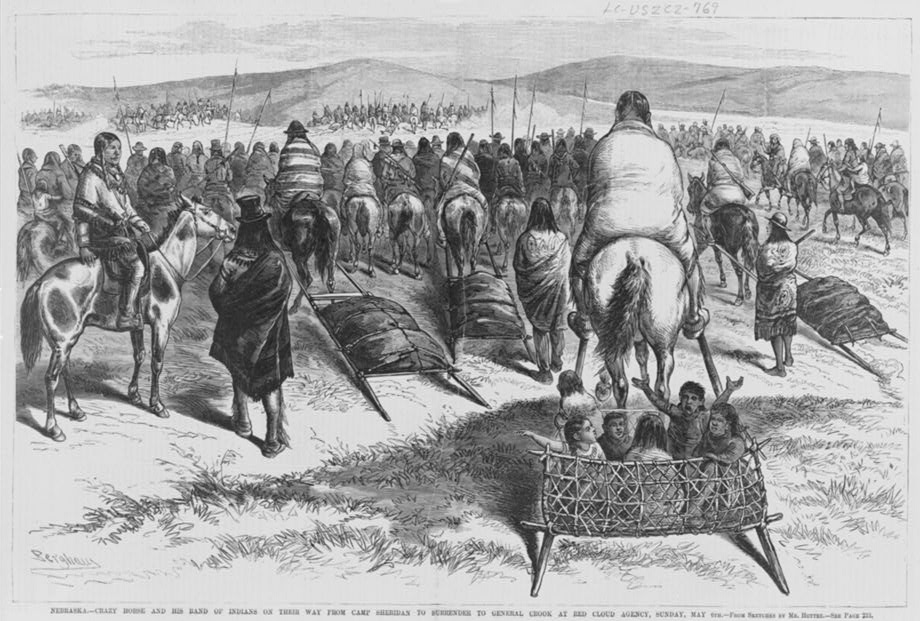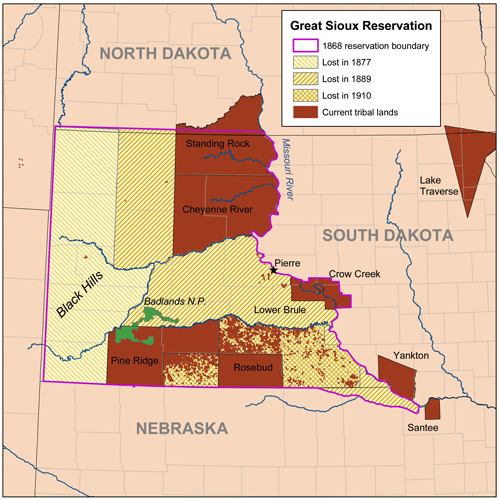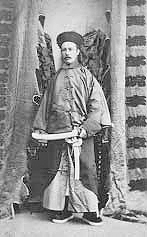|
1877
Events January * January 1 – Queen Victoria is proclaimed Empress of India by the Royal Titles Act 1876, introduced by Benjamin Disraeli, the Prime Minister of the United Kingdom . * January 8 – Great Sioux War of 1876: Battle of Wolf Mountain – Crazy Horse and his warriors fight their last battle with the United States Cavalry in Montana. * January 20 – The Conference of Constantinople ends, with Ottoman Turkey rejecting proposals of internal reform and Balkan provisions. * January 29 – The Satsuma Rebellion, a revolt of disaffected samurai in Japan, breaks out against the new imperial government; it lasts until September, when it is crushed by a professionally led army of draftees. February * February 17 – Major General Charles George Gordon of the British Army is appointed Governor-General of the Sudan. March * March 2 – Compromise of 1877: The 1876 United States presidential election is resolved with the selection of ... [...More Info...] [...Related Items...] OR: [Wikipedia] [Google] [Baidu] |
Compromise Of 1877
The Compromise of 1877, also known as the Wormley Agreement, the Tilden-Hayes Compromise, the Bargain of 1877, or Corrupt bargain, the Corrupt Bargain, was a speculated unwritten political deal in the United States to settle the intense dispute over the results of the 1876 United States presidential election, 1876 presidential election, ending the filibuster of the certified results and the threat of political violence in exchange for an end to federal Reconstruction era, Reconstruction. No written evidence of such a deal exists [or has yet to be found] and its precise details are a matter of historical debate, but most historians agree that the federal government adopted a policy of leniency towards the South to ensure federal authority and Republican Rutherford B. Hayes's election as president. The existence of an informal agreement to secure Hayes's political authority, known as the Bargain of 1877, was long accepted as a part of American history. Its supposed terms were revie ... [...More Info...] [...Related Items...] OR: [Wikipedia] [Google] [Baidu] |
Crazy Horse
Crazy Horse ( , ; – September 5, 1877) was a Lakota people, Lakota war leader of the Oglala band. He took up arms against the United States federal government to fight against encroachment by White Americans, White American settlers on Native Americans in the United States, Native American territory and to preserve the traditional way of life of the Lakota people. His participation in several famous battles of the Black Hills War on the northern Great Plains, among them the Fetterman Fight in 1866, in which he acted as a decoy, and the Battle of the Little Bighorn in 1876, in which he led a war party to victory, earned him great respect from both his enemies and his own people. In September 1877, four months after surrendering to U.S. troops under General George Crook, Crazy Horse was fatally wounded by a bayonet-wielding military guard while allegedly resisting imprisonment at Fort Robinson, Camp Robinson in Pine Ridge (region), northwestern Nebraska. He was honored by ... [...More Info...] [...Related Items...] OR: [Wikipedia] [Google] [Baidu] |
Satsuma Rebellion
The Satsuma Rebellion, also known as the , was a revolt of disaffected samurai against the new imperial government of the Empire of Japan, nine years into the Meiji era. Its name comes from the Satsuma Domain, which had been influential in the Meiji Restoration, Restoration and became home to unemployed samurai after military reforms rendered their status obsolete. The rebellion lasted from 29 January until 24 September of 1877, when it was decisively crushed, and its leader, Saigō Takamori, was shot and mortally wounded. Saigō's rebellion was the last and most serious of a series of armed uprisings against the new government of the Empire of Japan, the predecessor state to modern Japan. The rebellion was very expensive for the government, which forced it to make numerous monetary reforms including leaving the gold standard. The conflict effectively ended the samurai class and ushered in modern warfare fought by conscript soldiers instead of military nobles. It is also th ... [...More Info...] [...Related Items...] OR: [Wikipedia] [Google] [Baidu] |
1876 United States Presidential Election
United States presidential election, Presidential elections were held in the United States on November 7, 1876. Republican Party (United States), Republican Governor Rutherford B. Hayes of Ohio very narrowly defeated Democratic Party (United States), Democratic Governor Samuel J. Tilden of New York. Following President Ulysses S. Grant's decision to retire after his second term, U.S. Representative James G. Blaine emerged as frontrunner for the Republican nomination; however, Blaine was unable to win a majority at the 1876 Republican National Convention, which settled on Hayes as a compromise candidate. The 1876 Democratic National Convention nominated Tilden on the second ballot. The election was among the most contentious in American history, and was only resolved by the Compromise of 1877, in which Hayes agreed to end Reconstruction era, Reconstruction in exchange for recognition of his presidency. In the first count, Tilden had 184 Electoral College (United States), electoral ... [...More Info...] [...Related Items...] OR: [Wikipedia] [Google] [Baidu] |
Great Sioux War Of 1876
The Great Sioux War of 1876, also known as the Black Hills War, was a series of battles and negotiations that occurred in 1876 and 1877 in an alliance of Lakota people, Lakota Sioux and Northern Cheyenne against the United States. The cause of the war was the desire of the US government to obtain ownership of the Black Hills. Gold had been discovered in the Black Hills, settlers began to encroach onto Native Americans in the United States, Native American lands, and the Sioux and the Cheyenne refused to cede ownership. Traditionally, American military and historians place the Lakota at the center of the story, especially because of their numbers, but some Native Americans believe the Cheyenne were the primary target of the American campaign. Among the many battles and skirmishes of the war was the Battle of the Little Bighorn - often known as ''Custer's Last Stand'' and the most storied of the many encounters between the US Army and mounted Plains Indians. Despite the Indian vict ... [...More Info...] [...Related Items...] OR: [Wikipedia] [Google] [Baidu] |
Benjamin Disraeli
Benjamin Disraeli, 1st Earl of Beaconsfield (21 December 1804 – 19 April 1881) was a British statesman, Conservative Party (UK), Conservative politician and writer who twice served as Prime Minister of the United Kingdom. He played a central role in the creation of the History of the Conservative Party (UK), modern Conservative Party, defining its policies and its broad outreach. Disraeli is remembered for his influential voice in world affairs, his political battles with the Liberal Party (UK), Liberal Party leader William Ewart Gladstone, and his one-nation conservatism or "Tory democracy". He made the Conservatives the party most identified with the British Empire and military action to expand it, both of which were popular among British voters. He is the only British prime minister to have been British Jews, born Jewish. Disraeli was born in Bloomsbury, at that time a part of Middlesex. His father left Judaism after a dispute at his synagogue; Benjamin became an An ... [...More Info...] [...Related Items...] OR: [Wikipedia] [Google] [Baidu] |
Battle Of Wolf Mountain
The Battle of Wolf Mountain (also known as the Battle of the Wolf Mountains, Miles's Battle on the Tongue River, the Battle of the Butte, Where Big Crow Walked Back and Forth, and called the Battle of Belly Butte by the Northern Cheyenne) was fought on January 8, 1877, by soldiers of the United States Army against Lakota Sioux and Northern Cheyenne warriors during the Great Sioux War of 1876. The battle was fought in southern Montana Territory, about four miles southwest of modern-day Birney, Montana, along the Tongue River. and In 2001, the Wolf Mountains Battlefield was listed on the National Register of Historic Places, and was raised to the status of National Historic Landmark in 2008. Background Following the defeat of Lieutenant Colonel George A. Custer on June 25, 1876, in the Battle of Little Bighorn, the United States government sent a large number of reinforcements into Montana Territory. By autumn, a few bands of the Sioux and Cheyenne tribes had begun r ... [...More Info...] [...Related Items...] OR: [Wikipedia] [Google] [Baidu] |
Emile Berliner
Emile Berliner (May 20, 1851 – August 3, 1929) originally Emil Berliner, was a German-American inventor. He is best known for inventing the lateral-cut flat disc gramophone record, record (called a "gramophone record" in British and American English) used with a gramophone. He founded the Berliner Gramophone, United States Gramophone Company in 1894;Library of Congress"Emile Berliner and the Birth of the Recording Industry: The Gramophone" Retrieved 2017-01-19. The Gramophone Company in London, England, in 1897; Deutsche Grammophon in Hanover, Germany, in 1898; and Berliner Gramophone#Berliner Gram-o-phone Company of Canada, Berliner Gram-o-phone Company of Canada in Montreal in 1899 (chartered in 1904). Berliner also invented what was probably the first radial aircraft engine (1908), a helicopter (1919), and acoustical tiles (1920s). Early life Berliner was born in Hanover, Germany, in 1851 into a Jewish merchant family. He completed an apprenticeship to become a merchant, as ... [...More Info...] [...Related Items...] OR: [Wikipedia] [Google] [Baidu] |
Queen Victoria
Victoria (Alexandrina Victoria; 24 May 1819 – 22 January 1901) was Queen of the United Kingdom of Great Britain and Ireland from 20 June 1837 until Death and state funeral of Queen Victoria, her death in January 1901. Her reign of 63 years and 216 days, which was List of monarchs in Britain by length of reign, longer than those of any of her predecessors, constituted the Victorian era. It was a period of industrial, political, scientific, and military change within the United Kingdom of Great Britain and Ireland, United Kingdom, and was marked by a great expansion of the British Empire. In 1876, the British parliament voted to grant her the additional title of Empress of India. Victoria was the daughter of Prince Edward, Duke of Kent and Strathearn (the fourth son of King George III), and Princess Victoria of Saxe-Coburg-Saalfeld. After the deaths of her father and grandfather in 1820, she was Kensington System, raised under close supervision by her mother and her Comptrol ... [...More Info...] [...Related Items...] OR: [Wikipedia] [Google] [Baidu] |
March 2
Events Pre-1600 * 537 – Siege of Rome: The Ostrogoth army under king Vitiges begins the siege of the capital. Belisarius conducts a delaying action outside the Flaminian Gate; he and a detachment of his '' bucellarii'' are almost cut off. * 986 – Louis V becomes the last Carolingian king of West Francia after the death of his father, Lothaire. * 1331 – Fall of Nicaea to the Ottoman Turks after a siege. * 1444 – Skanderbeg organizes a group of Albanian nobles to form the League of Lezhë. * 1458 – George of Poděbrady is chosen as the king of Bohemia. * 1476 – Burgundian Wars: The Old Swiss Confederacy hands Charles the Bold, Duke of Burgundy, a major defeat in the Battle of Grandson in Canton of Neuchâtel. * 1484 – The College of Arms is formally incorporated by Royal Charter signed by King Richard III of England. * 1498 – Vasco da Gama's fleet visits the Island of Mozambique. 1601–1900 * 1657 – ... [...More Info...] [...Related Items...] OR: [Wikipedia] [Google] [Baidu] |
Charles George Gordon
Major-general (United Kingdom), Major-General Charles George Gordon Companion of the Order of the Bath, CB (28 January 1833 – 26 January 1885), also known as Chinese Gordon, Gordon Pasha, Gordon of Khartoum and General Gordon , was a British Army officer and administrator. He saw action in the Crimean War as an officer in the British Army. However, he made his military reputation in Qing Dynasty#Rebellion, unrest, and external pressure, China, where he was placed in command of the "Ever Victorious Army", a force of Chinese soldiers led by European officers which was instrumental in putting down the Taiping Rebellion, regularly defeating much larger forces. For these accomplishments, he was given the nickname "Chinese Gordon" and honours from both the Emperor of China and the British. He entered the service of the Isma'il Pasha, Khedive of Egypt in 1873 (with British government approval) and later became the List of governors of pre-independence Sudan, Governor-General of the ... [...More Info...] [...Related Items...] OR: [Wikipedia] [Google] [Baidu] |
Samurai
The samurai () were members of the warrior class in Japan. They were originally provincial warriors who came from wealthy landowning families who could afford to train their men to be mounted archers. In the 8th century AD, the imperial court downsized the national army and delegated the security of the countryside to these privately trained warriors. Eventually the samurai clans grew so powerful that they became the ''de facto'' rulers of the country. In the aftermath of the Gempei War (1180-1185), Japan formally passed into military rule with the founding of the first shogunate. The status of samurai became heredity by the mid-eleventh century. By the start of the Edo period, the shogun had disbanded the warrior-monk orders and peasant conscript system, leaving the samurai as the only men in the country permitted to carry weapons at all times. Because the Edo period was a time of peace, many samurai neglected their warrior training and focused on peacetime activities such as a ... [...More Info...] [...Related Items...] OR: [Wikipedia] [Google] [Baidu] |










